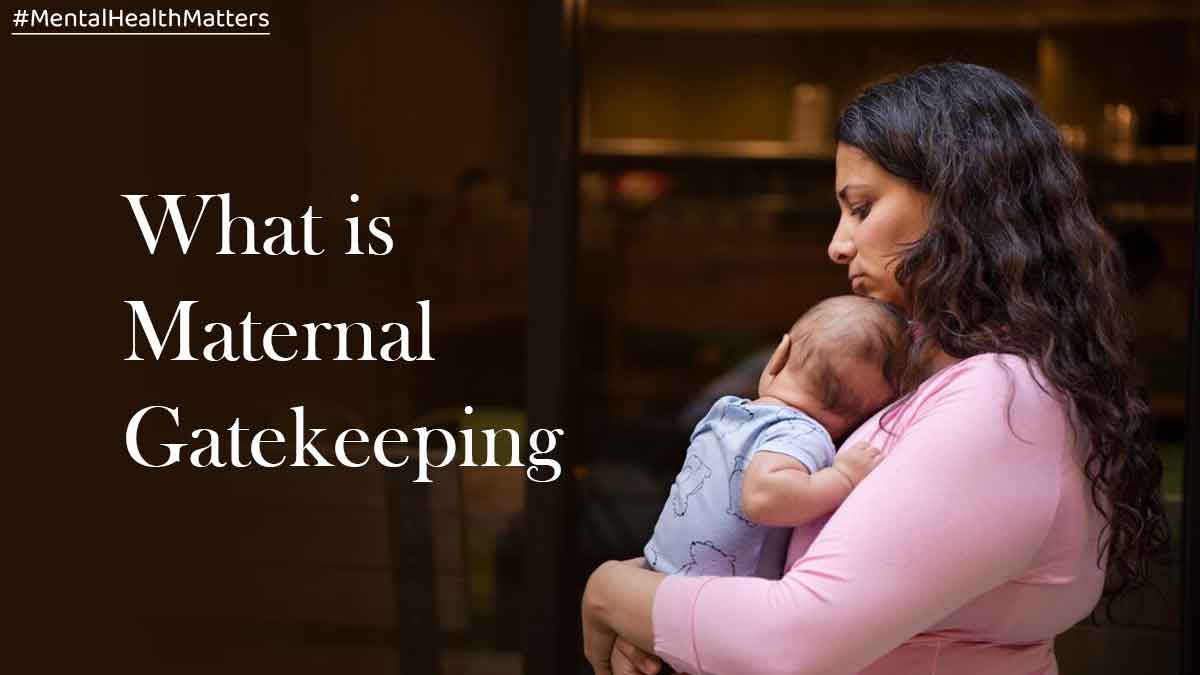
Do you, as a mother, direct or control how fathers perform caregiving tasks? Do you criticise or micromanage your partner’s interaction with your children? If yes, you may be experiencing maternal gatekeeping. This phenomenon involves mothers controlling and restricting their children's access to the other parent, typically the father. This week in our ‘Mental Health Matters’ series, we spoke to our expert Dr Gorav Gupta, Senior Consultant Psychiatrist and Director, Tulasi Healthcare, New Delhi, who explained maternal gatekeeping and how mothers may feel lonely as new parents.
Table of Content:-
CHECK YOUR
MENTAL HEALTH

Understanding Maternal Gatekeeping

“When a mother limits her partner's participation in activities related to their child, she is engaging in maternal gatekeeping. She would want to determine how the child should be raised, how the father should spend his time, evaluate the amount of quality time he spends with the child, and so on”, said Dr Gupta.
According to a 2023 study, maternal gatekeeping is a significant aspect of the co-parenting dynamic, representing the interactions between two parents regarding their shared child. It encompasses how parents perceive and fulfil their parental responsibilities, as well as the degree to which they encourage or hinder each other's parenting efforts.
Reasons Behind Maternal Gatekeeping
Some mothers may feel they are best equipped to care for their children or have a strong desire to maintain control over parenting responsibilities. “However, this need for control can inadvertently lead to isolation, as they may be reluctant to include their partners in childcare and relationship-building activities”, emphasised Dr Gupta.
Also Read: Mental Health Matters: Expert Explains How Engaging In Self-Talk Benefits Your Mental Health
Consequences of Maternal Gatekeeping

A woman may feel alone if she believes she is the only one who can take care of her children and take care of the home because of her gatekeeping habits or because she thinks her father isn't around to help.
Dr Gupta added, “Mothers who act as primary caregivers may experience feelings of loneliness and overburdening due to an imbalance in parental responsibilities. Fathers who are micromanaged or discouraged from participating in parental duties may also feel lonely, as they are deprived of family bonding and shared experiences.”
According to HHS Public Access, mothers were shown to enable fathers' involvement more when they had more unbiased views about fathers' roles; conversely, when fathers had higher levels of negative emotionality, mothers facilitated fathers' involvement less.
Mothers who strive for perfection may inadvertently make others feel humiliated or demoralised when their caregiving efforts are disregarded, invalidated, or redone by the mother. In cases of relationship breakdown leading to separation or divorce, maternal gatekeeping against the father may escalate.
Also Read: Mental Health Matters: Expert Explains The Phenomenon Of Crying For Small Things
Mitigating Feelings of Isolation

There are many reasons why in maternal gatekeeping, a woman may experience loneliness as a new parent. This includes:
- Limited support
- Absence of shared obligations
- Lost possibilities for connection
- Pressure to do it all
Dr Gupta highlighted, “Parents must acknowledge the consequences of gatekeeping behaviours and work towards establishing transparent communication, shared obligations, and reciprocal assistance. Encouraging a partnership approach to parenting and actively supporting fathers' involvement in childcare can foster unity and reduce feelings of isolation. Seeking support from friends, relatives, or parenting organisations can also alleviate the burden of childcare responsibilities.”
[Disclaimer: This article contains information provided by an expert and is for informational purposes only. Hence, we advise you to consult your expert if you are dealing with any mental health issues for proper diagnosis and treatment.]
Also watch this video
How we keep this article up to date:
We work with experts and keep a close eye on the latest in health and wellness. Whenever there is a new research or helpful information, we update our articles with accurate and useful advice.
Current Version
